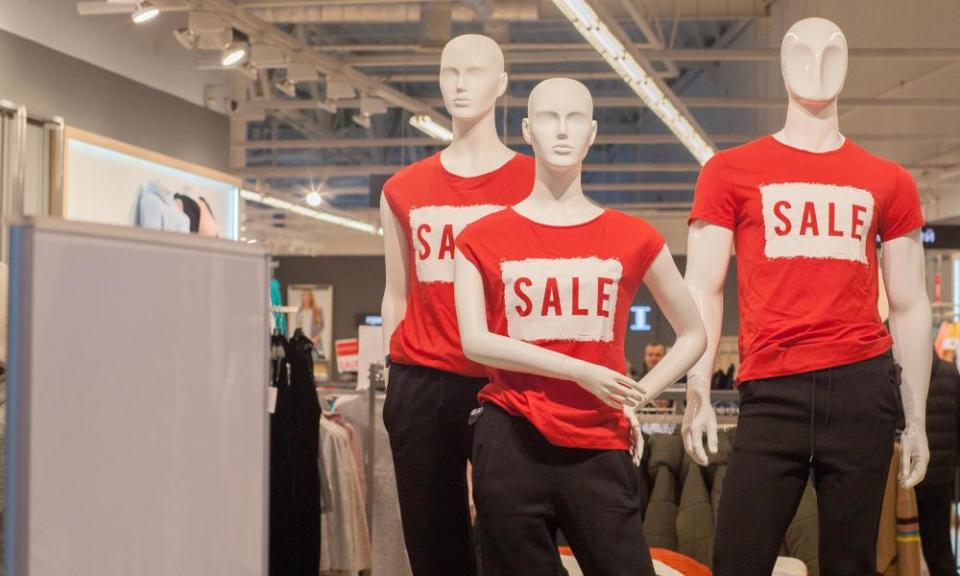Less than 6% of $4.2bn received in jobkeeper repaid by ASX-listed companies, Asic reveals

Payments under the wages subsidy scheme totalled more than $90bn and also flowed to thousands of unlisted companies, schools and charities
Australian companies listed on the stock exchange repaid just 5.73% of the $4.2bn in jobkeeper they received over the past two years, figures released by the corporate regulator reveal.
The data was released by the Australian Securities and Investments Commission on Tuesday under legislation passed by the government with the support of Pauline Hanson’s One Nation party following public uproar after some companies receiving the wages subsidy paids dividends and executive bonuses.
However, it covers only companies listed on the ASX because the government, with Hanson’s support, rejected efforts by crossbenchers and the opposition to extend coverage to Australia’s 10,000 biggest businesses.
Payments under the jobkeeper scheme totalled more than $90bn and also flowed to thousands of unlisted companies, schools and charities.
The scheme, the Morrison government’s third attempt at an economic stimulus package, began in March last year and finished at the end of March this year.
Related: Treasury debated clawing back jobkeeper from businesses three months into subsidy scheme
Listed companies received $1.65bn of jobkeeper in the 2020 financial year and $2.56bn in the 2021 financial year, the new Asic figures show.
They repaid just $26.8m in 2020 but amid rebounding profits and increasing political pressure this increased dramatically in 2021 to reach $241m in 2021.
Companies are not obliged to repay the subsidy, but there has been increasing public pressure for those that increased their revenues to do so.
The new figures disclosed by Asic on Wednesday show the total amount received by each listed company that has provided it with the information under the new laws.
This means that the figures are bigger than those previously released by some companies in their annual financial accounts because those companies only disclosed the amount paid to employees who continued working during the pandemic.
Paying employees who continued to work directly boosted company profits by reducing how much they had to spend on their payroll, which is typically a businesses’ biggest expense.
The figures show that Premier Investments, the retail group controlled by billionaire Solomon Lew, received total jobkeeper payments of $87m, less than previous industry estimates of about $100m.
Premier paid Lew dividends totalling more than $47m in 2020 and 2021 and has said that jobkeeper receipts were not taken into account in determining dividend payments and bonuses.
Premier has repaid what it described as the “net benefit” it reaped from jobkeeper of $15.6m.
Qantas, which had much of its fleet grounded during the pandemic due to state border closures and the Morrison government’s ban on Australians travelling internationally, was the biggest recipient of jobkeeper among listed companies, receiving a total of $856m.
It hasn’t paid a dividend since March last year and in the 2020-21 financial year its revenue plunged 58.4% to $5.93bn and it posted a loss of $1.83bn.
Labor frontbencher Andrew Leigh, who has campaigned vigorously over jobkeeper’s flaws, said the data was a “Clayton’s disclosure” compared to similar job subsidy schemes overseas that give far more information about payments to all recipients and accused the government of being “allergic to transparency”.
“We think we ought to have jobkeeper information in the public domain for every business with turnover over $10m because this is taxpayers’ money,” he said.
“If this kind of transparency is good enough for conservative governments in the US and UK it should be good enough for our conservative government.”
He said the percentage repaid by listed companies was in line with that disclosed across all businesses in New Zealand.
However, unlike the New Zealand data, the Australian figures do not reveal what unlisted companies have repaid.
“Almost all of repayments have come from the publicly listed firms,” Leigh said.

 Yahoo Finance
Yahoo Finance 